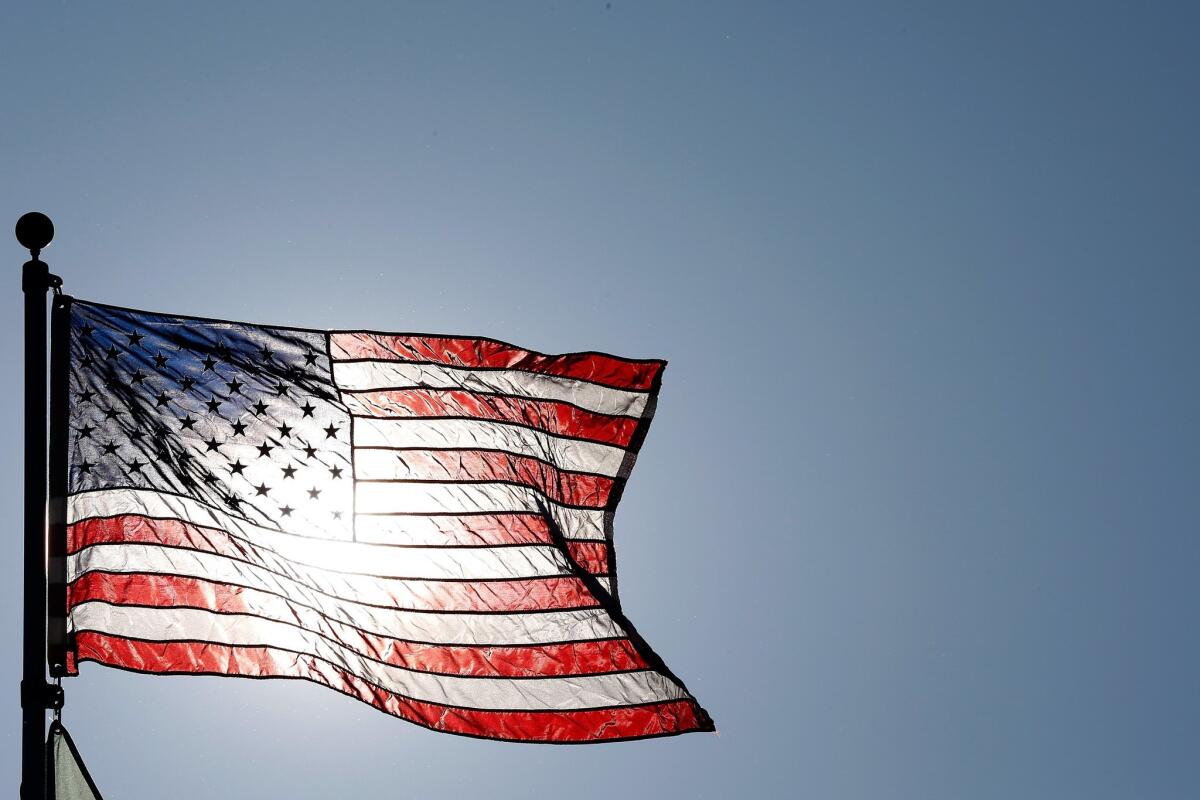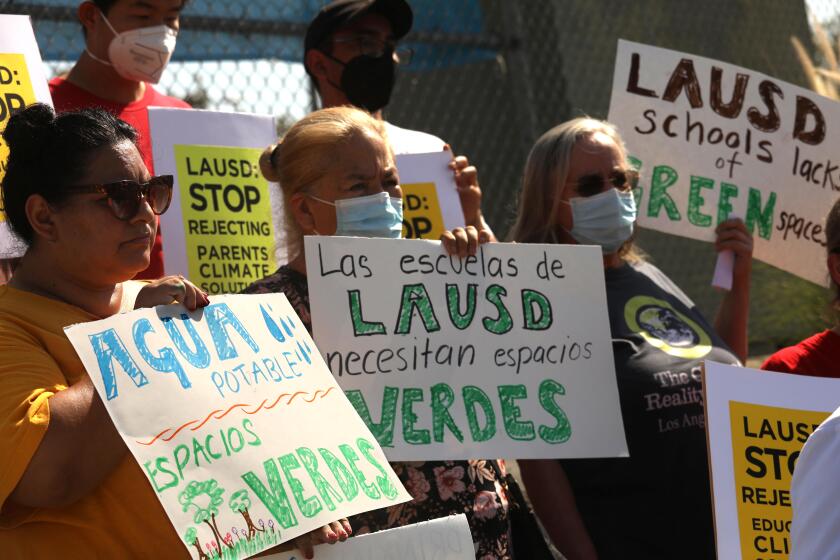Opinion: Americans aren’t optimistic -- but they aren’t all that pessimistic, either

Does the election matter to you?
- Share via
Reporting from Washington — In my Wednesday column, I wrote about the perennial, recurring discovery that Americans aren’t as confident in the country’s future as they once were.
It’s a theme that pops up in almost every presidential campaign, at least when the economy’s not doing well: Candidates from the party out of power announce that the American Dream is in trouble, and suggest that the man in the White House is at fault.
But it’s nothing new. “Between 1989 and 2014, no poll ever found a majority that believed the next generation would be better off,” I wrote.
That sounded pretty sweeping -- and a sharp-eyed editor from the Tampa Bay Tribune, Jim Verhulst, emailed to question it.
He noted that the Gallup Poll published a graph last year suggesting that Americans were actually pretty optimistic from 1997 until 2010. In 2010, for example, Gallup’s chart showed that when people were asked if “today’s youth will have a better life than their parents,” 62% said they thought a better life was likely; only 38% said it was unlikely.
But the weight of other polling -- and Gallup’s own more-detailed results -- persuade me that those numbers are a bit misleading.
For example, a CBS News/New York Times poll just one month after the Gallup survey asked respondents if they thought the next generation’s future would be better or worse. Only 25% said they thought the next generation’s life would be better; 46% thought it would be worse; 26% thought it would be about the same as today.
Other polls produced similarly pessimistic responses.
Why the big discrepancy? Probably the different choice of answers each poll offered.
The Gallup Poll didn’t actually ask people if they thought a better life for their children was “likely” or “unlikely.” Instead, it gave them four options: “very likely,” “somewhat likely,” “somewhat unlikely” and “very unlikely.”
With those choices, most people chose one of the tentative options -- either “somewhat likely” or “somewhat unlikely.” In the 2010 version, only 17% said they thought a better future was “very likely.” Gallup’s chart got to 62% “likely” by combining the numbers who said “very likely” and “somewhat likely.”
In the CBS News/New York Times poll, respondents had fewer, simpler choices: “better,” “worse” and “about the same.”
The bottom line: If you ask Americans whether they believe the next generation will be better off -- a question that requires some confidence in the outcome -- fewer than 50% say yes. And that’s been true since 1989.
But if you give them a chance to express uncertainty, they will. The Gallup Poll shows that most Americans aren’t deeply convinced either way; they think the future might turn out either better or worse than the present.
So here’s a more refined version of that sweeping statement I made in Wednesday’s column: Between 1989 and 2014, no poll ever found a majority that was confident the next generation would be better off. However, some polls found that most Americans thought a better future was more likely than not.
If you’d like to read all the poll numbers on this subject, you can find a report that links to an exhaustive collection compiled by the American Enterprise Institute here.
Follow Doyle McManus on Twitter @doylemcmanus and Google+
More to Read
A cure for the common opinion
Get thought-provoking perspectives with our weekly newsletter.
You may occasionally receive promotional content from the Los Angeles Times.










